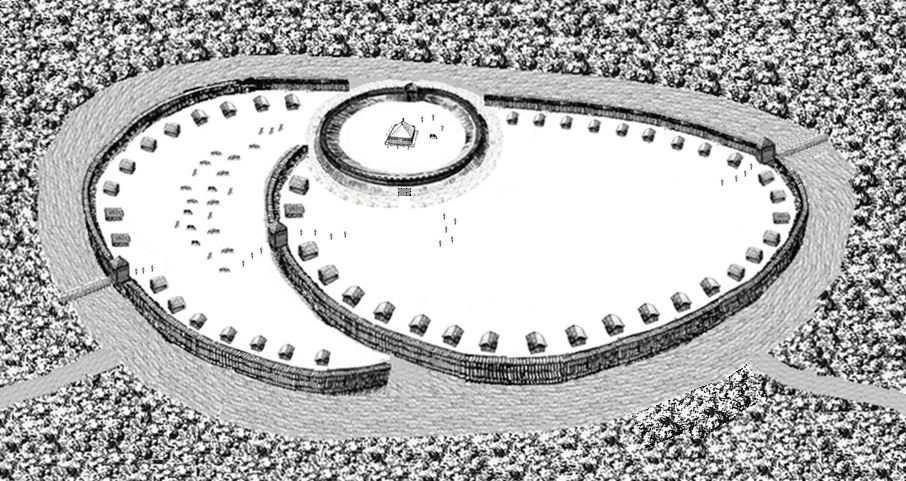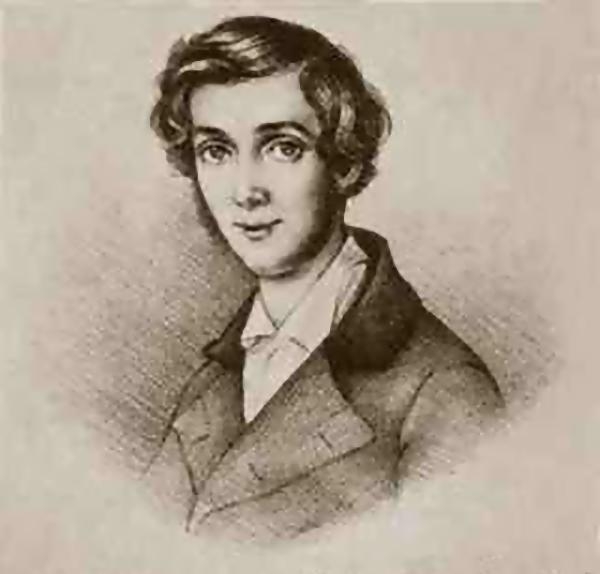|
Kessin
Kessin is a village and a former municipality in the district of Rostock, in Mecklenburg-Vorpommern, Germany. History Since 7 June 2009, it is part of the municipality Dummerstorf. Before this, it was within the Warnow-Ost Amt. A group of West Slavic people affiliated with the Veleti tribe settled Kessini in the 8th century. Known as the Kessinians, linguistically, they belonged to the Polabian Slavs. In popular culture A large part of the plot of Theodor Fontane's realist novel ''Effi Briest'' takes place in a fictional town named Kessin, which is said to be in Farther Pomerania Farther Pomerania, Hinder Pomerania, Rear Pomerania or Eastern Pomerania (; ), is a subregion of the historic region of Pomerania in north-western Poland, mostly within the West Pomeranian Voivodeship, while its easternmost parts are within the Po .... References {{authority control Villages in Mecklenburg-Western Pomerania ... [...More Info...] [...Related Items...] OR: [Wikipedia] [Google] [Baidu] |
Kessinians
The Kessinians, also known as Kessini, Chizzini, ''Kcynianie'' and ''Chyżanie'', were a medieval West Slavic tribe in what is now northeastern Germany. They inhabited the territory between the Warnow and Recknitz rivers, today split between the districts of Rostock and Vorpommern-Rügen in Mecklenburg-Vorpommern. Their capital and name-giving stronghold was a gard near modern Kessin east of Rostock. Linguistically, they belonged to the Polabian Slavs. Since the Slavic settlement of the region in the 8th and 9th centuries,Ole Harck, Christian Lübke, Zwischen Reric und Bornhöved: Die Beziehungen zwischen den Dänen und ihren slawischen Nachbarn vom 9. Bis ins 13. Jahrhundert: Beiträge einer internationalen Konferenz, Leipzig, 4.-6. Dezember 1997, Franz Steiner Verlag, 2001, p.13, the area was inhabited by the Veleti. The area became part of the Billung march of the Holy Roman Empire's Duchy of Saxony in 936. In the course of a successful uprising in 983, the Veleti made a tran ... [...More Info...] [...Related Items...] OR: [Wikipedia] [Google] [Baidu] |
Polabian Slavs
Polabian Slavs, also known as Elbe Slavs and more broadly as Wends, is a collective term applied to a number of Lechites, Lechitic (West Slavs, West Slavic) tribes who lived scattered along the Elbe river in what is today eastern Germany. The approximate territory stretched from the Baltic Sea in the north, the Saale and the ''Limes Saxoniae''Christiansen, 18 in the west, the Ore Mountains and the Western Sudetes in the south, and medieval History of Poland (966–1385), Poland in the east. The Polabian Slavs, largely conquered by Saxons and Danish people, Danes from the 9th century onwards, were included and gradually cultural assimilation, assimilated within the Holy Roman Empire. The tribes became gradually Germanization, Germanized and assimilated in the following centuries; the Sorbs are the only descendants of the Polabian Slavs to have retained their identity and culture. The Polabian language is now extinct. However, the two Sorbian languages are spoken by approximate ... [...More Info...] [...Related Items...] OR: [Wikipedia] [Google] [Baidu] |
Veleti
The Veleti, also known as Veletians, Wilzi, Wielzians, and Wiltzes, were a group of medieval Lechitic tribes within the territory of Western Pomerania, related to Polabian Slavs. They had formed together the Confederation of the Veleti, also known as the Union of the Veleti, a loose monarchic confederation of the tribes. Said state existed between the 6th and 10th centuries, after which, it was succeeded by the Lutician Federation. Name The name ''Veleti'' stems from the root ''vel-'' ('high, tall'). The Veleti were called by other names, probably given by their neighbours, such as ''Lutices'', ''Ljutici'', or ''Volki'', ''Volčki''. The latter means 'wolf', and the former probably 'fierce creature' based upon the comparison with the belarusian definition ''lyutyj zvěr''.' In common with other Slavic groups between the Elbe and Oder Rivers, they were often described by Germanic sources as Wends. In the late 10th century, they were continued by the Lutici. In Einhard's ''V ... [...More Info...] [...Related Items...] OR: [Wikipedia] [Google] [Baidu] |
Mecklenburg-Vorpommern
Mecklenburg-Vorpommern (MV; ; ), also known by its Anglicisation, anglicized name Mecklenburg–Western Pomerania, is a Federated state, state in the north-east of Germany. Of the country's States of Germany, sixteen states, Mecklenburg-Vorpommern Demographics of Germany#States, ranks 14th in population; it covers an area of , making it the sixth largest German state in area; and it is 16th in population density. Schwerin is the state capital and Rostock is the largest city. Other major List of cities in Mecklenburg-Vorpommern, cities include Neubrandenburg, Stralsund, Greifswald, Wismar, and Güstrow. It was named after the two regions of Mecklenburg and Western Pomerania (German: Vorpommern). The state was established in 1945 after World War II through the merger of the historic regions of Mecklenburg and Prussian Western Pomerania by the Soviet Military Administration in Germany, Soviet military administration in Allied-occupied Germany. It became part of the German Democrat ... [...More Info...] [...Related Items...] OR: [Wikipedia] [Google] [Baidu] |
Dummerstorf
Dummerstorf is a municipality in the Rostock district, in Mecklenburg-Vorpommern, Germany. Geography The municipality Dummerstorf is located approximately 10 km in the southeast of Rostock. Districts The municipality is composed since 7 June 2009 of the former municipalities of the dissolved Amt Warnow-Ost. Districts are: * Dummerstorf with Bandelstorf, Dishley, Göldenitz, Pankelow, Schlage and Waldeck * Damm with Groß Viegeln, Klein Viegeln and Reez * Kavelstorf with Griebnitz, Klingendorf and Niex * Kessin Kessin is a village and a former municipality in the district of Rostock, in Mecklenburg-Vorpommern, Germany. History Since 7 June 2009, it is part of the municipality Dummerstorf. Before this, it was within the Warnow-Ost Amt. A group of ... with Beselin and Hohen Schwarfs * Lieblingshof with Godow, Petschow and Wolfsberg * Prisannewitz with Prisannewitz-Ausbau, Groß Potrems, Klein Potrems, Scharstorf and Wendorf Politics Since the local elections ... [...More Info...] [...Related Items...] OR: [Wikipedia] [Google] [Baidu] |
Warnow-Ost
Warnow-Ost was an '' Amt'' in the former district of Bad Doberan, in Mecklenburg-Vorpommern, Germany. The seat of the ''Amt'' was in Dummerstorf. It was disbanded in June 2009. The ''Amt'' Warnow-Ost consisted of the following municipalities: # Damm # Dummerstorf # Kavelstorf # Kessin Kessin is a village and a former municipality in the district of Rostock, in Mecklenburg-Vorpommern, Germany. History Since 7 June 2009, it is part of the municipality Dummerstorf. Before this, it was within the Warnow-Ost Amt. A group of ... # Lieblingshof # Prisannewitz Former Ämter in Mecklenburg-Western Pomerania Rostock (district) {{LandkreisRostock-geo-stub ... [...More Info...] [...Related Items...] OR: [Wikipedia] [Google] [Baidu] |
West Slavs
The West Slavs are Slavic peoples who speak the West Slavic languages. They separated from the common Slavic group around the 7th century, and established independent polities in Central Europe by the 8th to 9th centuries. The West Slavic languages diversified into their historically attested forms over the 10th to 14th centuries. Today, groups which speak West Slavic languages include the Poles, Czechs, Slovaks, Silesians, Kashubians, and Sorbs. From the ninth century onwards, most West Slavs converted to Roman Catholicism, thus coming under the cultural influence of the Latin Church, adopting the Latin alphabet, and tending to be more closely integrated into cultural and intellectual developments in western Europe than the East Slavs, who converted to Eastern Orthodox Christianity and adopted the Cyrillic alphabet. Linguistically, the West Slavic group can be divided into three subgroups: Lechitic, including Polish, Silesian, Kashubian, and the extinct Polabian and Po ... [...More Info...] [...Related Items...] OR: [Wikipedia] [Google] [Baidu] |
Effi Briest
''Effi Briest'' () is a realist novel by Theodor Fontane. Published in book form in 1895, ''Effi Briest'' marks both a watershed and a climax in the poetic realism of literature. It can be thematically compared to other novels on 19th-century marriage from a female perspective, such as ''Anna Karenina'' and ''Madame Bovary'', which are also adultery tragedies. Plot introduction Seventeen-year-old Effi Briest, the daughter of a German aristocrat, is married off to 38-year-old Baron Geert von Innstetten, who courted her mother Luise and was spurned for his status, which he has now improved. Plot summary Effi Briest, who is attracted by social status, moves to the fictional Pomeranian port of Kessin (loosely modeled on Swinemünde). Her husband Innstetten is away for weeks at a time, and Effi, who is shunned by local nobles, finds but one friend. Her suspicions that their house may be haunted are not entirely laid to rest by Innstetten. When she says there may be a ghost, he deri ... [...More Info...] [...Related Items...] OR: [Wikipedia] [Google] [Baidu] |
Municipalities Of Germany
MunicipalitiesCountry Compendium. A companion to the English Style Guide European Commission, May 2021, pages 58–59. (, ; singular ) are the lowest level of official territorial division in . This can be the second, third, fourth or fifth level of territorial division, depending on the status of the municipality and the '''' (federal state) it is part of. The city-states Berlin, Brem ... [...More Info...] [...Related Items...] OR: [Wikipedia] [Google] [Baidu] |
Rostock (district)
Rostock () is a Districts of Germany, district in the north of Mecklenburg-Vorpommern, Germany. It is bounded by (from the west and clockwise) the district Nordwestmecklenburg, the Baltic Sea, the district-free city Rostock and the districts Vorpommern-Rügen, Mecklenburgische Seenplatte (district), Mecklenburgische Seenplatte and Ludwigslust-Parchim. The district seat is the town Güstrow. History Rostock District was established by merging the former districts of Bad Doberan (district), Bad Doberan and Güstrow (district), Güstrow as part of the local government reform of September 2011. The name of the district was decided by referendum on 4 September 2011. The project name for the district was ''Mittleres Mecklenburg''. Geographic features There are a number of lakes within the boundaries of Rostock district, including: * Inselsee * Hohen Sprenzer See * Krakower See Towns and municipalities References [...More Info...] [...Related Items...] OR: [Wikipedia] [Google] [Baidu] |
Germany
Germany, officially the Federal Republic of Germany, is a country in Central Europe. It lies between the Baltic Sea and the North Sea to the north and the Alps to the south. Its sixteen States of Germany, constituent states have a total population of over 84 million in an area of , making it the most populous member state of the European Union. It borders Denmark to the north, Poland and the Czech Republic to the east, Austria and Switzerland to the south, and France, Luxembourg, Belgium, and the Netherlands to the west. The Capital of Germany, nation's capital and List of cities in Germany by population, most populous city is Berlin and its main financial centre is Frankfurt; the largest urban area is the Ruhr. Settlement in the territory of modern Germany began in the Lower Paleolithic, with various tribes inhabiting it from the Neolithic onward, chiefly the Celts. Various Germanic peoples, Germanic tribes have inhabited the northern parts of modern Germany since classical ... [...More Info...] [...Related Items...] OR: [Wikipedia] [Google] [Baidu] |
Theodor Fontane
Theodor Fontane (; 30 December 1819 – 20 September 1898) was a German novelist and poet, regarded by many as the most important 19th-century German-language Literary realism, realist author. He published the first of his novels, for which he is best known today, only at age 58 after a career as a journalist. Many of his novels delve into topics that were more or less taboo for discussion in the polite society of Fontane's day, including marital infidelity, class differences, urban vs. rural differences, abandonment of children, and suicide. His novels sold well during his lifetime and several have been adapted for film or audio works. Fontane's novels are known for their complex, often sceptical view of society in the German empire. He shows different social and political parts of society meeting and sometimes clashing, his main characters range from lower-middle class to Prussian nobility. Fontane is known as a writer of realism, not only because he was conscientious about th ... [...More Info...] [...Related Items...] OR: [Wikipedia] [Google] [Baidu] |


